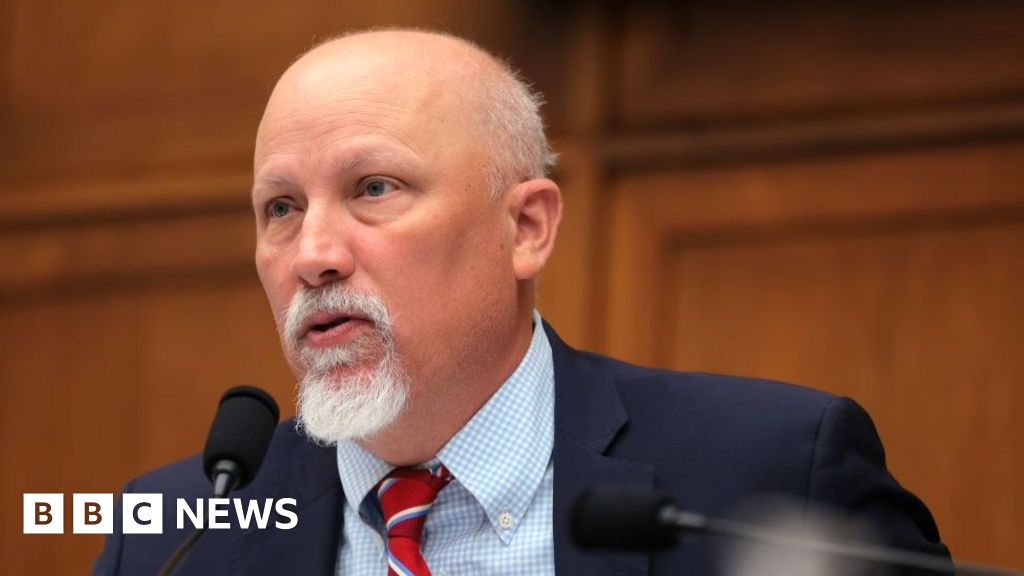ARTICLE AD BOX
The US Army Reserve and Maine police missed opportunities to intervene before a man carried out a 2023 mass shooting that killed 18 people, according to a state inquiry.
An independent commission released its final report on Tuesday, finding that local Army and police officials knew Robert Card was suffering a mental health crisis in the months before the shooting.
Yet officials did not follow up on warnings about the 40-year-old's mental state and did not remove his guns, the commission wrote.
On 25 October 2023, the US Army reservist opened fire at a bowling alley and a bar in Lewiston in the deadliest shooting in Maine’s history.
Card, a former hand grenade instructor, led police on a three-day manhunt before he was found dead.
“We will never know if he might still have committed the mass shooting even if someone had managed to remove his firearms before October 25,” Daniel Wathen, former Maine chief justice and commission chairman, told reporters on Tuesday.
“But the commission unanimously finds that there were several opportunities that if taken, might have changed the course of these tragic events.”
The 215-page report said law enforcement had authority under Maine’s yellow flag law to seize Card’s guns and take him into protective custody weeks before the shootings.
But the findings were most critical of local Army Reserve unit leaders, whom Mr Wathen said “failed to exercise their authority over him and undertake necessary steps to reduce the threat he posed to the public”.
The US Army Reserve told the BBC that administrative action had been taken against three officers as a result of failures in Card's chain of command.
It also said the Army Reserve was making changes to its psychological health programme and leadership training.
"We remain deeply saddened by these events and continue to mourn with the people of the state of Maine, the victims, and their families," said spokesman Bryce Dubee.
The report found Card’s commanding officer knew he was experiencing auditory hallucinations, engaging in aggressive behaviour, collecting guns and making “ominous comments” months before the shooting.
“They ignored the strong recommendations from Card’s mental health providers to stay engaged in his care and take steps to remove weapons from his home,” Mr Wathen said.
The Army Reserve also “neglected to share information relating to Card’s threatening behavior” with other relevant authorities, including the sheriff’s office. Mr Wathen said some of the commission’s requests for information from the Army remain unresolved.
The Sagadahoc County Sheriff’s Office has previously said the Army Reserve did not alert law enforcement to key information, which they said prevented officers from taking appropriate steps.
But the report says state authorities had enough information to move to strip Card of his firearms without the Army's help by September 2023.
The commission offers the most detailed picture yet of Card’s final months and the shooting.
Family members first reported that Card was expressing anger, paranoia and erratic behaviour to the Sagadahoc County Sheriff’s Office in May 2023.
The sheriff’s office said it communicated these concerns to a senior officer in Card’s Army Reserve unit.
But there is no evidence the officer followed up with Card or contacted the Army Reserve’s psychological help programme, according to the inquiry.
Card’s family made repeated, unsuccessful attempts to directly reach Army Reserve officials.
Card was ordered to undergo a psychiatric evaluation in July 2023 after he tried to attack another member of his unit during a training trip in New York.
But even after doctors warned his superiors that he needed additional supervision and care, unit officials failed to follow up with Card.
A friend, whom Card had also abruptly punched in the face, texted members of the unit in September that year: "I believe he is going to snap and do a mass shooting."

 8 months ago
38
8 months ago
38








 English (US) ·
English (US) ·